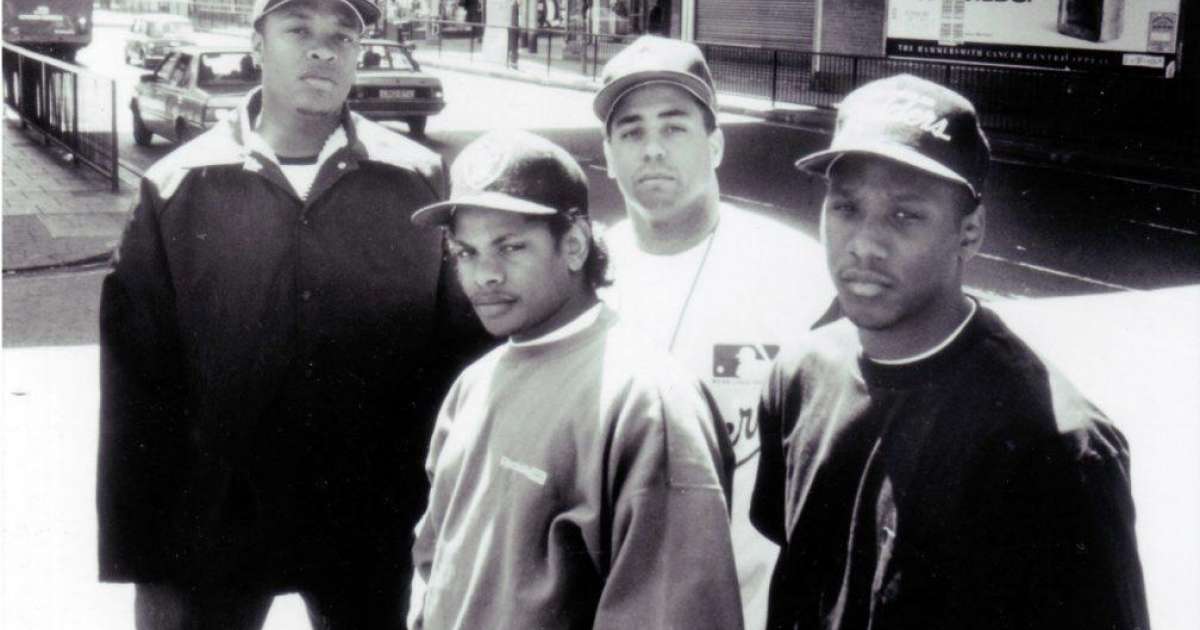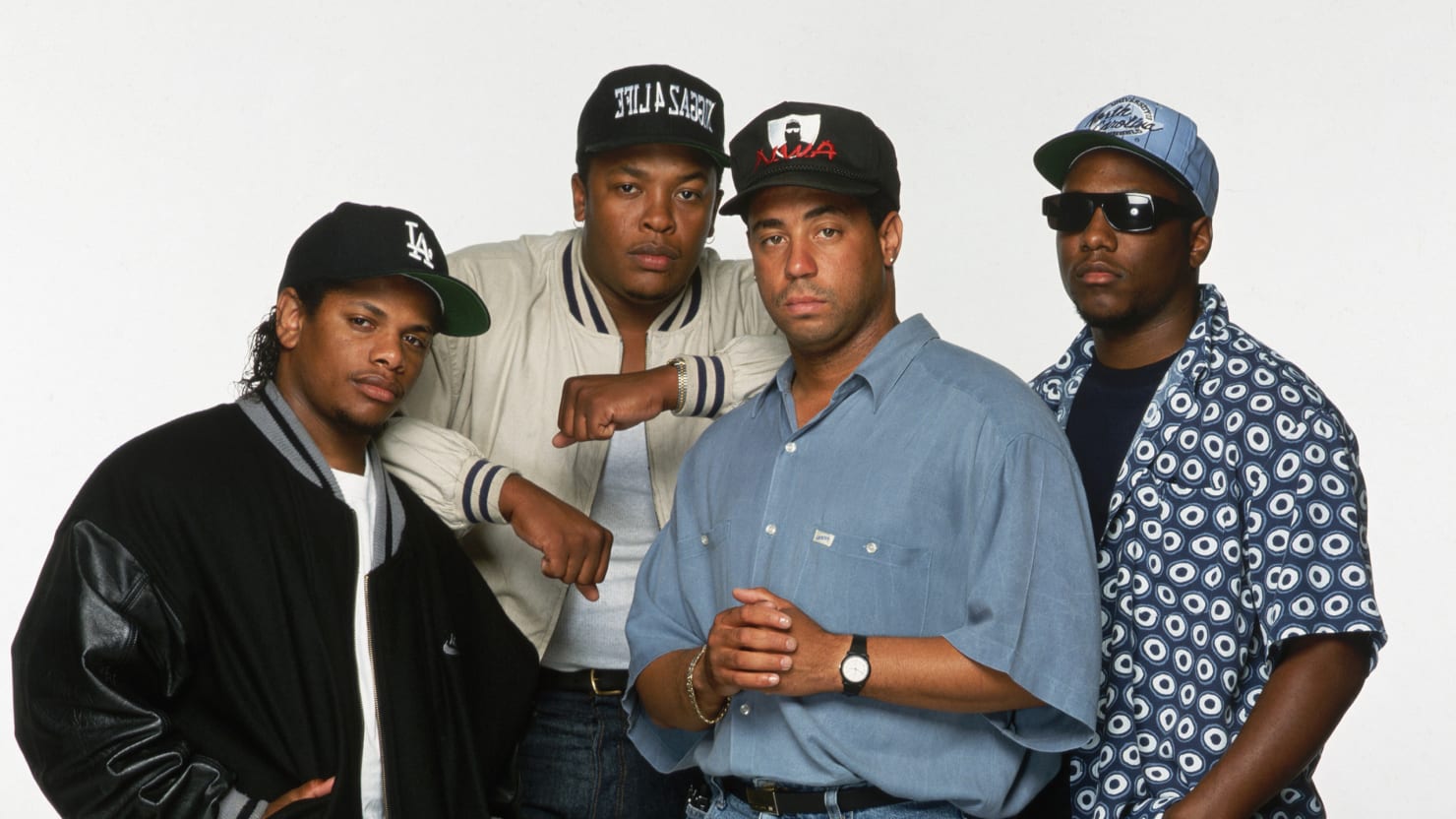Blogs
N.W.A’s Signature Sound: The Birth of Gangsta Rap
Influences on N.W.A’s Sound

N.W.A’s music emerged in the late 1980s in Los Angeles, California, during a time when the city was facing a wave of gang violence and police brutality. The group’s sound was heavily influenced by the socio-political environment, as well as the musical styles of earlier rap and funk groups, N.W.A’s signature sound .
One of the key influences on N.W.A’s signature sound was the music of West Coast funk pioneers like George Clinton and Bootsy Collins. Their use of heavy basslines, synthesizers, and funky grooves influenced the production style of N.W.A’s music, particularly that of Dr. Dre.
Another significant influence on N.W.A’s signature sound was the earlier gangsta rap movement, which emerged in the mid-1980s with artists like Ice-T and Schoolly D. These artists often portrayed life in the inner city as violent and dangerous, with lyrics about drug dealing, gang activity, and police brutality. N.W.A built on this style by creating more explicit and provocative lyrics that reflected their own experiences growing up in South Central Los Angeles.
N.W.A’s signature sound was also shaped by the unique talents and personalities of its members. Dr. Dre’s production skills and musical vision, Ice Cube’s lyrical prowess and sociopolitical commentary, and Eazy-E’s entrepreneurial spirit all played a role in creating the group’s sound.
Defining N.W.A’s Sound

N.W.A’s music production techniques were a major factor in creating their signature sound. The group used a combination of drum machines, samplers, and live instruments to create a dense, layered sound that was distinct from other rap music of the time. Dr. Dre’s use of samples, particularly from funk and soul records, was a key element in N.W.A’s signature sound.
Lyrically, N.W.A’s signature sound was characterized by explicit language, provocative subject matter, and socio-political commentary. Their songs tackled controversial issues like police brutality, racial inequality, and poverty, and provided a voice for marginalized communities. The group’s lyrics were often delivered in a fast-paced, aggressive style, with a focus on storytelling and vivid imagery.
N.W.A’s signature sound was also influenced by their vocal delivery. The group members often used ad-libs and other vocal techniques to emphasize their lyrics and create a sense of urgency. They also utilized different vocal styles, such as Eazy-E’s high-pitched, nasal delivery, and Ice Cube’s deeper, more menacing tone, to create a varied and dynamic sound.
The Legacy of N.W.A

N.W.A’s music had a profound impact on hip-hop culture, both in terms of its musical style and its socio-political commentary. The group’s signature sound influenced subsequent West Coast rap artists like Snoop Dogg and Tupac Shakur, as well as the wider gangsta rap genre. N.W.A’s music also played a role in bringing attention to issues affecting marginalized communities, such as police brutality and systemic racism.
N.W.A’s signature sound continues to resonate with fans today, and their legacy can be seen in the continued popularity of gangsta rap and West Coast rap music. The group’s sound and message were revolutionary for their time, and their impact on music culture is still felt today.
In conclusion, N.W.A’s signature sound was the product of a unique combination of influences, production techniques, and individual talents. Their music provided a voice for marginalized communities and tackled controversial issues that were often ignored by mainstream media. The group’s signature sound, which incorporated heavy basslines, synthesizers, and provocative lyrics, was a reflection of the socio-political environment and the realities of life in inner-city Los Angeles.
Despite the controversy surrounding their music, N.W.A’s legacy endures. The group’s impact on hip-hop culture is undeniable, and their music has inspired subsequent generations of rap artists. N.W.A’s influence can be heard in the music of modern-day artists like Kendrick Lamar, who continues to push the boundaries of socio-political commentary in rap music.
In conclusion, N.W.A’s signature sound was the result of a combination of musical influences, production techniques, and individual talents. Their music not only provided a voice for marginalized communities but also revolutionized the rap genre and paved the way for future generations of artists. As fans of N.W.A, we can appreciate their contributions to music culture and their enduring legacy.
Don’t forget to subscribe to our newsletter for more articles on the history of rap music and the cultural influences that shaped it. Thank you for reading!
>>>Related Blog: N.W.A Reunion and Legacy Tours: Celebrating the Legacy of the Pioneering Hip-Hop Group

